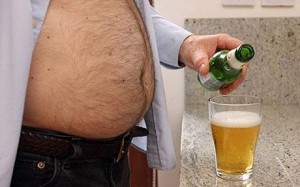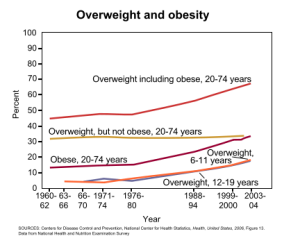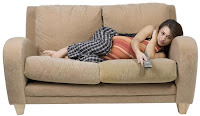 Surprise, surprise…Americans are getting just as many calories from booze as they are from soda. And being of the “empty” variety, calories from both booze and soda add to the girth without adding to energy stores. A government study released today has implicated alcoholic beverages for 5% of the average American’s daily caloric intake, while sodas make up 6%. But what’s the big deal? None really…except that overweight or obese Americans now make up over 60% of the population!
Surprise, surprise…Americans are getting just as many calories from booze as they are from soda. And being of the “empty” variety, calories from both booze and soda add to the girth without adding to energy stores. A government study released today has implicated alcoholic beverages for 5% of the average American’s daily caloric intake, while sodas make up 6%. But what’s the big deal? None really…except that overweight or obese Americans now make up over 60% of the population!
Think about that–being overweight or obese is the norm in the U.S. And while many heads are pounding trying to figure out one extravagant reason or another, it’s really no big mystery to me, as I’ve written extensively about it in this blog. In my 2008 book, The Six Keys to Optimal Health, I described the role booze plays in weight gain,
With alcohol providing about seven calories per gram, one might mistake it for a great energy source. However, alcohol is metabolized far too slowly for it to be an efficient fuel; and therefore, it is simply converted to fat and stored. Alcohol is also very high in calories compared to carbohydrates and proteins (four calories per gram apiece), which makes it nothing more than an excellent source of weight gain. Unfortunately alcohol has no nutritional value whatsoever–no vitamins, no minerals, nothing—so the pounds it provides come without the added benefits found in food…as a dietary staple, alcohol provides little by way of nutrition.
The study found:
- On any given day, about one-third of men and one-fifth of women consumed calories from beer, wine or liquor.
- Averaged out to all adults, the average guy drinks 150 calories from alcohol each day, or the equivalent of a can of Budweiser.
- The average woman drinks about 50 calories, or roughly half a glass of wine.
- Men drink mostly beer. For women, there was no clear favorite among alcoholic beverages.
- There was no racial or ethnic difference in average calories consumed from alcoholic beverages. But there was an age difference, with younger adults putting more of it away.
 For reference, a 12-ounce can of regular Coca-Cola has 140 calories, slightly less than a same-sized can of regular Bud. A 5-ounce glass of wine is around 100 calories.
For reference, a 12-ounce can of regular Coca-Cola has 140 calories, slightly less than a same-sized can of regular Bud. A 5-ounce glass of wine is around 100 calories.
Now let me make something perfectly clear here, something I have also been very open about in this blog: I do not advocate the government placing restrictions on the sale or consumption of either alcohol or soft drinks, as New York has done. In fact, I find it ludicrous. When people need their government to step in and prevent them from becoming fat…well, that’s just pathetic. People need to wake the eff up! I’m telling you right now that booze puts on weight without any nutritional benefit. Sure, getting a buzz on is fun, but if you do it anything more than occasionally, expect to get fat, simple as that. The younger you are, the stronger the illusion of this not happening to you. I promise you with all certainty that if you drink more than occasionally, and you do it for long enough, you will wake up fat one day. G’head…prove me wrong. You’ll lose.
 But, no, governments shouldn’t be stepping in and mandating smaller drinks any more than they should have done with sodas. But you might just see this become a new controversy, because as Americans continue to blow up, the powers that be will grasp for anything to try and slow it down. So drink sizes in New York may be next—you may be drinking draft beer out of shot glasses (for $20 a pop) before you know it. Just pointing out the absurdity of regulating what people do with their own bodies, that’s all.
But, no, governments shouldn’t be stepping in and mandating smaller drinks any more than they should have done with sodas. But you might just see this become a new controversy, because as Americans continue to blow up, the powers that be will grasp for anything to try and slow it down. So drink sizes in New York may be next—you may be drinking draft beer out of shot glasses (for $20 a pop) before you know it. Just pointing out the absurdity of regulating what people do with their own bodies, that’s all.
In the end, it’s up to you. Starts with information, so now you know. Booze adds empty calories and anything more than an occasional buzz-up will lead to fatness. Your choice. But don’t cry later and demand the government abolish everyone’s’ rights to drink to fatness, because you knew. Okay that’s all, folks…
















